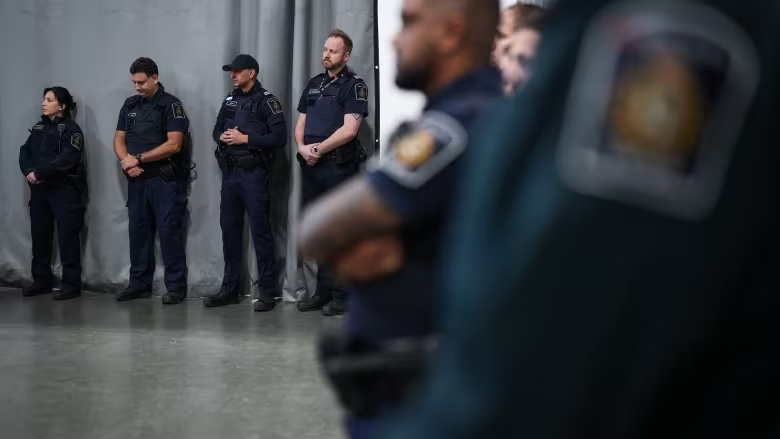
CBSA Officers Uncover Opium Seizure in Tsawwassen, B.C. New Audit Reveals Training Gap Among Investigators (Darryl Dyck/The Canadian Press)
In the corridors of Canada's border security, a disturbing revelation surfaces: a critical deficiency in the training of criminal investigators tasked with safeguarding the nation's ports and borders. As the findings of a freshly minted audit report from the Canada Border Services Agency (CBSA) come to light, a shroud of uncertainty descends upon the efficacy of crime detection and prevention efforts.
Released just last week on the CBSA's official website, this audit lands amidst a gathering storm of concerns over the surge in car thefts plaguing the nation. Today, in Ottawa, a consortium of border officials, policymakers, law enforcement, and industry representatives convene to grapple with this escalating crisis. At the forefront of their discussions looms the pivotal issue of intercepting stolen vehicles before they vanish beyond the nation's borders.
Delving into the depths of CBSA's criminal investigations program spanning from 2016 to 2021, the audit exposes a troubling reality: a significant portion of investigators operate without essential training, potentially compromising the integrity of their work. According to the report, a staggering revelation emerges—none of the investigators within the $35 million program have completed the requisite training courses, with less than half even undertaking the foundational "Foundations of Criminal Investigations" course.
Voices from within the agency paint a grim picture of the consequences wrought by this lack of training. With cases potentially falling through the cracks and evidence mired in inadequacy, the efficacy of criminal investigations hangs in the balance. The audit reveals a chilling scenario where complex cases are prematurely closed, leaving vital gaps in prosecution efforts.
Yet, amidst the shadows of uncertainty, clarity eludes as to the genesis of this training shortfall. While finger-pointing ensues between management and regional authorities, the core issue remains unresolved. The spectre of the pandemic's disruption to training initiatives looms large, but it fails to fully account for the systemic lapses persisting even in pre-pandemic times.
However, glimmers of hope emerge on the horizon as CBSA pledges to address the training gap in collaboration with key stakeholders. Yet, the silence shrouding current completion rates and the absence of concrete solutions cast a pall of doubt over the agency's capacity to rectify the issue promptly.
Meanwhile, as the federal government pledges substantial funding to fortify the CBSA's capacity in combating stolen vehicle exports, political rhetoric reaches a fever pitch. With accusations of mismanagement echoing through the chambers of power, the spectre of organized crime casts a long shadow over the nation's security apparatus.
As Canada grapples with the menace of escalating auto thefts, the efficacy of its border security apparatus hangs in the balance. Will the revelations of the audit spur decisive action, or will they be lost in the quagmire of bureaucratic inertia? Only time will tell as the nation navigates the treacherous waters of border security in an era of unprecedented challenges.















